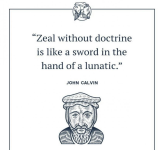Moral fundamentalism is a drag on democracy. This drag is to be expected when people feel backed into a corner, or when their social position limits opportunities. But fundamentalism anywhere blocks communication and inquiry across differences. Whenever people suppose their reading of a problem is exhaustive, they autocratically predefine what’s relevant and they covertly prejudge alternatives. They assume, as a matter of course, that others are stubbornly refusing to accept the interpretation that is staring right out at them.
Inspired by fellow philosopher Anthony Weston, I often ask my ethics students to create a diabolical toolkit of rules that would torpedo public dialogue. The idea here, I explain, is to spell out rules that would maximize the distance between “us” and “them,” ensuring that possibilities for...
blog.oup.com


